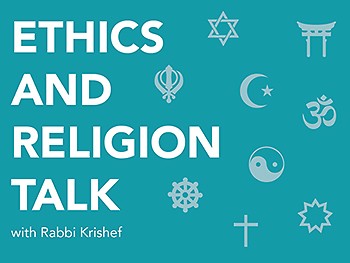Fred Stella, the Pracharak (Outreach Minister) for the West Michigan Hindu Temple, responds:
“Many religious institutions have proactively instituted such programs. They include encouraging an atmosphere of transparency, rules regarding one-on-one meetings, and youth education.
“The challenge that many ancient religions face is a long history of patriarchy. This is not to say that women cannot be abusers. They certainly can. But the numbers don’t lie. The vast majority of abuse cases are caused by men. Deconstructing the paternalistic order does result in less abuse.
“Most often, we think of abuse as something that happens between an adult and child. However, even when a romance occurs between consenting adults it can be detrimental to the non-clergy member. There can still be a power play at work in the dynamics of the relationship. In Hinduism, a number of spiritual teachers have created great trauma in the lives of their students in this manner.
“It is important that everyone in positions of authority (teachers, clergy, etc.) be aware that if a certain line is crossed the police will be notified. A safe harbor for miscreants has been the custom of treating these issues in house. While some less serious infractions can be, genuine abuse is a matter for law enforcement. A college age youth group volunteer flirting with a 16 year old member would certainly be inappropriate—even grounds for dismissal—but should not be viewed with the same concern as actual crimes.”
Chris Curia, the Director of Youth Ministries at Fairway Christian Reformed Church, responds:
“Unfortunately, in trying to maintain a facade of spiritual perfection, religious organizations can be the very places that breed and perpetuate deceit, neglect, and secrecy. Its leaders must vow to cultivate responsibility and protect the safety and integrity of individuals and families in and outside of the organization. They must respect their commitments and protect anyone in their jurisdiction from being broken by misconduct. And organizations must have clear, specific policies to hold those values intact, particularly protecting the most marginalized in the community.
“Especially as our societal exposure to trauma has increased, organizations must uphold universal values that respect the dignity and value of every human being. To paraphrase theologian Peter Rollins, we come under particular scrutiny when the stories we tell about ourselves do not align with our practices. So, to prevent abuse, it is imperative that the stories and values of religious organizations are aligned, and their alignment is maintained.”
The Rev. Sandra Nikkel, head pastor of Conklin Reformed Church, responds:
“There are laws of physics to govern the behavior of the cosmos. The rule of Law maintains the fairness, equilibrium, and well being of society. In Matthew 22:37-39 Jesus talks about a two-prong law that summarizes the entire Old Testament Law: ‘Love the Lord your God with all your heart and with all your soul and with all your mind. This is the first and greatest commandment. And the second is like it: Love your neighbor as yourself.’ When we as representatives of God violate this Law all other pillars of the institution and the work that we do falls apart. Steps should be taken to prevent such violation. Religious leaders should be held to the highest standards of accountability—not perfection. They in turn should humbly be willing to give account of the purity of the work they do. No one should be above scrutiny. If we abide by the Law of love we will be making room for God’s Kingdom to infiltrate and purify the lowest levels of corruption in our world. We live in an age where The Kingdom of God has already come but it has yet to come fully. May God’s servants be the means of speeding the fullness of the Kingdom to come as they remain faithful to the law of Love!”
My response:
It is not possible to prevent every tragedy under all circumstances. But congregations can take reasonable steps to reduce risk, especially by focusing on children’s safety. First, any employee who has extended contact with children should have a background check before being hired. Second, for school and youth events, there should be policies in place restricting situations in which an adult and a child or teen may be alone.
Finally, note that I am not in favor of banning individuals with criminal records from worshipping in the synagogue. I do, however, appreciate that the subset of offenders of a particular sexual nature that makes them more likely to re-offend (not all sexual offenses fall into this category, although offenses against young children, for example, do), should be allowed into the house of worship only under a set of safety restrictions and only under constant supervision.
Next week’s column will respond to the question of how leaders should respond to allegations of abuse.
This column answers questions of Ethics and Religion by submitting them to a multi-faith panel of spiritual leaders in the Grand Rapids area. We’d love to hear about the ordinary ethical questions that come up in the course of your day as well as any questions of religion that you’ve wondered about. Tell us how you resolved an ethical dilemma and see how members of the Ethics and Religion Talk panel would have handled the same situation. Please send your questions to [email protected].
The Rapidian, a program of the 501(c)3 nonprofit Community Media Center, relies on the community’s support to help cover the cost of training reporters and publishing content.
We need your help.
If each of our readers and content creators who values this community platform help support its creation and maintenance, The Rapidian can continue to educate and facilitate a conversation around issues for years to come.
Please support The Rapidian and make a contribution today.
